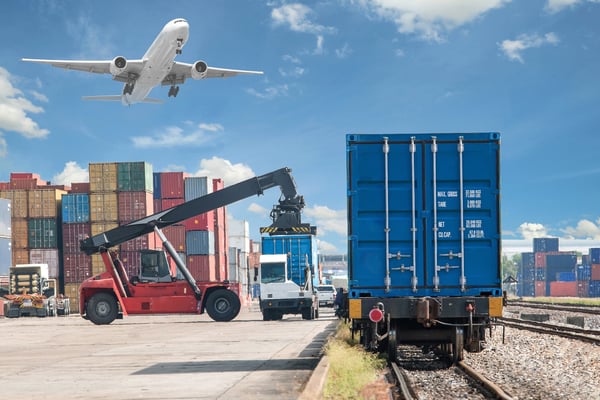The UCC Delegated Act has been amended by Commission Delegated Regulation (EU) 2018/1063. We are highlighting the most important changes in a series of articles. In this article we will focus on changes concerning the proof of customs status of Union goods and transit.

In general, all goods within the customs territory of the Union shall be presumed to have the customs status of Union goods unless it is established that they are not Union goods. However, some circumstances may make it necessary to provide evidence of the customs status of Union goods, on condition that the goods have been:
- moved from one point to another within the EU customs territory and temporarily leave that territory by sea or air; or
- moved from one point to another within the EU customs territory, through a territory outside the customs territory of the Union (like Switzerland) without being transhipped, and carried under cover of a single transport document issued in a Member State; or
- moved from one point to another within the EU customs territory on a means of transport other than that onto which they were initially loaded with a new transport document being issued, covering carriage from the territory outside the EU customs territory.
In such situations it may be necessary to have a T2L document to prove the customs status of the goods, a T2LF (for goods transported to, from or between the non-fiscal areas of the EU), a properly completed invoice or transport document indicating the code “T2L”, or a shipping company's manifests. The customs authorities of the EU member States may authorise a person, the so-called "authorised issuer", to use T2L, T2LF documents, commercial documents and shipping company's manifests.
Goods whose customs status of Union goods cannot be proven, where required, will be considered to be non-Union goods.
The UCC DA amendment has clarified that persons requesting a proof of customs status of Union goods, irrespective of whether they are established in the EU customs territory or not, should be required to register for an EORI number. Such a registration is required to have access to the UCC Proof of Union Status system, which is the trans-European IT system to store, manage and retrieve some electronic Proofs of Union Status.
The changes to the transit procedure concern the external Union transit procedure (T1), which applies mainly to the movement of non-Union goods. It suspends import duties, other charges and commercial policy measures until the goods reach their destination in the EU. However, the external Union transit procedure is also used where Union goods are exported to a common transit country or where they are exported and pass through one or more common transit countries and the common transit procedure is being used. It can also happen in the following cases:
- the Union goods have undergone customs export formalities with a view to refunds being granted on export to third countries under the common agricultural policy;
- the Union goods have come from intervention stocks, they are subject to measures of control as to their use or destination, and they have undergone customs formalities on export to third countries under the common agricultural policy;
- the Union goods are eligible for the repayment or remission of import duties on condition that they are placed under external transit.
The UCC DA amendment has further taken into consideration the situation where Union goods exported to a third country and moved through the EU customs territory under a TIR operation or under a transit procedure in accordance with the ATA/Istanbul Convention should be required to be placed under the external transit procedure and hence become non-Union goods. In such a situation the use of the export procedure would normally be followed by a transit procedure. The UCC DA amendment wishes to eliminate the risk that a customs debt and a debt for other charges not covered by a guarantee arises.
To facilitate the supervision by the customs authorities of movements of excise goods (energy products, alcohol and manufactured tobacco) placed under the export procedure followed by the transit procedure, such goods should also be allowed to be placed under the external transit procedure, by which they lose their customs status of Union goods.